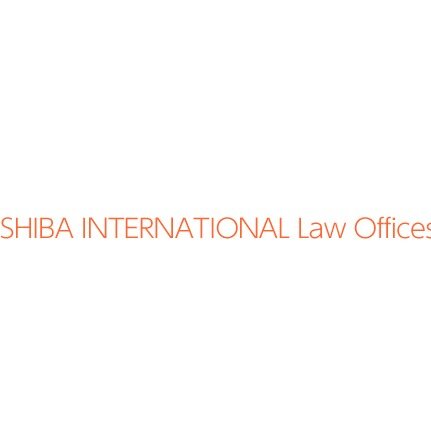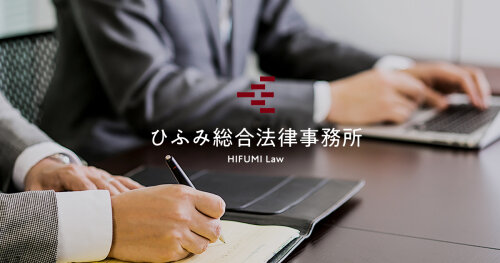Best Equity Capital Markets Lawyers in Tokyo
Share your needs with us, get contacted by law firms.
Free. Takes 2 min.
List of the best lawyers in Tokyo, Japan
About Equity Capital Markets Law in Tokyo, Japan
Equity Capital Markets (ECM) refer to the broad arena in which companies raise capital through the sale of shares, either via public offerings or private placements. Tokyo, as one of Asia's leading financial centers, has a highly developed and sophisticated ECM landscape governed by stringent laws and regulations. The Tokyo Stock Exchange (TSE) is the principal venue for such activities, and Japanese ECM law is rooted in both national legislation and the exchange's rules. Whether you are a domestic startup seeking an initial public offering or an international company aiming to list in Tokyo, understanding the local legal environment is crucial.
Why You May Need a Lawyer
Participating in Equity Capital Markets involves significant legal complexity. Here are some common scenarios where legal assistance is highly recommended:
- Preparing for an Initial Public Offering (IPO) on the Tokyo Stock Exchange
- Complying with disclosure requirements and ongoing reporting obligations
- Structuring and executing rights issues, placements, or follow-on offerings
- Marketing foreign securities to Japanese investors
- Navigating cross-border capital raising or dual listings
- Responding to regulatory inquiries or enforcement actions by the Financial Services Agency (FSA)
- Managing shareholder relations and communication, especially during public offerings
- Reviewing and drafting offering documentation to comply with Japanese securities law
- Ensuring compliance with anti-money laundering (AML) and know-your-customer (KYC) regulations
- Advising on insider trading and market manipulation laws
Lawyers specializing in ECM can help you navigate these challenges while ensuring that your company stays in line with all applicable laws and regulations.
Local Laws Overview
Equity Capital Markets in Tokyo are governed by several key pieces of legislation and regulatory bodies. The core legal framework includes:
- Financial Instruments and Exchange Act (FIEA): This law is the cornerstone of securities regulation in Japan. It governs the issuance and trading of securities, dictates disclosure obligations, and addresses matters such as fraud and market manipulation.
- Japanese Companies Act: Sets forth the legal requirements for company formation, corporate governance, and the issuance of new shares.
- Regulatory Bodies: The Financial Services Agency (FSA) and the Securities and Exchange Surveillance Commission (SESC) are the chief regulators overseeing ECM transactions, ensuring integrity and compliance.
- Rules of the Tokyo Stock Exchange (TSE): Any company seeking to list must comply with rigorous listing rules, including minimum financial requirements, mandatory disclosures, and corporate governance standards.
- Disclosure and Reporting: Companies must submit securities registration statements, continuous disclosure documents, and comply with ongoing reporting demands after listing.
- Cross-border Offerings: Foreign issuers are subject to additional requirements, including the need for Japanese-language documentation and, in some cases, the appointment of a Japanese legal representative.
Staying up to date with these rules is crucial, since regulatory requirements are subject to frequent national and international changes.
Frequently Asked Questions
What is the process for a company to conduct an IPO in Japan?
A company must meet TSE's listing requirements, prepare an offering prospectus, undergo extensive audits, and gain approval from regulators including the FSA. Legal counsel will guide the process and help ensure all documents are in order.
Are foreign companies allowed to list on the Tokyo Stock Exchange?
Yes, foreign companies may list via the Foreign Companies Section of the TSE, provided they satisfy requirements similar to domestic issuers and submit necessary documentation in Japanese.
What are the primary disclosure requirements for ECM transactions in Tokyo?
Issuers must file securities registration statements, provide ongoing disclosures regarding their financial condition, and promptly report material events affecting the company.
How are anti-money laundering (AML) and know-your-customer (KYC) regulations enforced?
Both issuers and intermediaries must verify the identity of investors and comply with strict AML guidelines, as enforced by the FSA and related authorities.
What is book-building, and is it permitted in Japan?
Book-building is a process for price discovery in share offerings. It is commonly used in Japanese IPOs, subject to FIEA and TSE rules to ensure fair allocation and pricing.
What are some key corporate governance requirements for listed companies?
Listed companies must comply with the TSE Corporate Governance Code, including the appointment of independent directors and establishment of audit committees.
Are there restrictions on marketing securities to Japanese investors?
Yes, marketing and solicitation are tightly regulated under FIEA, and all promotional materials must be truthful, not misleading, and generally provided in Japanese.
What are the penalties for non-compliance with ECM regulations?
Penalties range from administrative fines and suspension of market access to criminal prosecution for severe violations, such as insider trading or misstatement in disclosure documents.
Can private placements be made without a public prospectus in Japan?
Certain exemptions exist for private placements to a limited number of qualified institutional investors, but conditions and disclosure obligations still apply.
How can a legal expert assist with post-listing compliance?
Lawyers provide ongoing support for disclosure obligations, regulatory filings, shareholder communication, and advice on responding to regulator inquiries or enforcement actions.
Additional Resources
Here are some organizations and resources you may find helpful for Guidance on Equity Capital Markets in Tokyo, Japan:
- Financial Services Agency (FSA) - The national regulator for financial and securities markets
- Securities and Exchange Surveillance Commission (SESC) - Monitors compliance and investigates market abuse
- Tokyo Stock Exchange (TSE) - Provides rules, guidance, and support for listed companies
- Japan Securities Dealers Association (JSDA) - Industry self-regulatory organization supervising broker-dealers
- Japanese Government Legal Affairs Bureau - Offers general legal information and services
- Local and international law firms in Tokyo specializing in ECM
Next Steps
If you are considering entering the Equity Capital Markets in Tokyo or require assistance with an ongoing matter, consider taking the following steps:
- Identify your specific legal needs, such as IPO preparation, compliance, or cross-border issues
- Consult with a reputable law firm or lawyer experienced in ECM transactions in Japan
- Prepare relevant documents such as business plans, financial records, and corporate governance structures
- Review the requirements of the Tokyo Stock Exchange and consult regulatory bodies as necessary
- Stay informed of ongoing regulatory updates that may affect your business
Seeking out expert legal advice early can help navigate regulatory complexity, minimize risks, and enhance the success of your participation in Tokyo's thriving Equity Capital Markets.
Lawzana helps you find the best lawyers and law firms in Tokyo through a curated and pre-screened list of qualified legal professionals. Our platform offers rankings and detailed profiles of attorneys and law firms, allowing you to compare based on practice areas, including Equity Capital Markets, experience, and client feedback.
Each profile includes a description of the firm's areas of practice, client reviews, team members and partners, year of establishment, spoken languages, office locations, contact information, social media presence, and any published articles or resources. Most firms on our platform speak English and are experienced in both local and international legal matters.
Get a quote from top-rated law firms in Tokyo, Japan — quickly, securely, and without unnecessary hassle.
Disclaimer:
The information provided on this page is for general informational purposes only and does not constitute legal advice. While we strive to ensure the accuracy and relevance of the content, legal information may change over time, and interpretations of the law can vary. You should always consult with a qualified legal professional for advice specific to your situation.
We disclaim all liability for actions taken or not taken based on the content of this page. If you believe any information is incorrect or outdated, please contact us, and we will review and update it where appropriate.
















